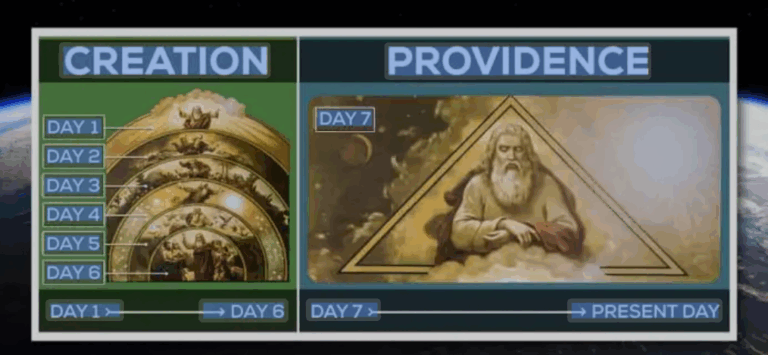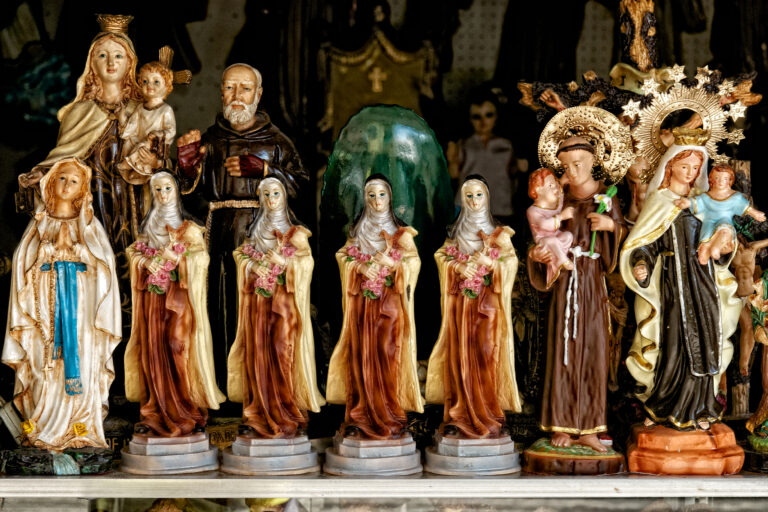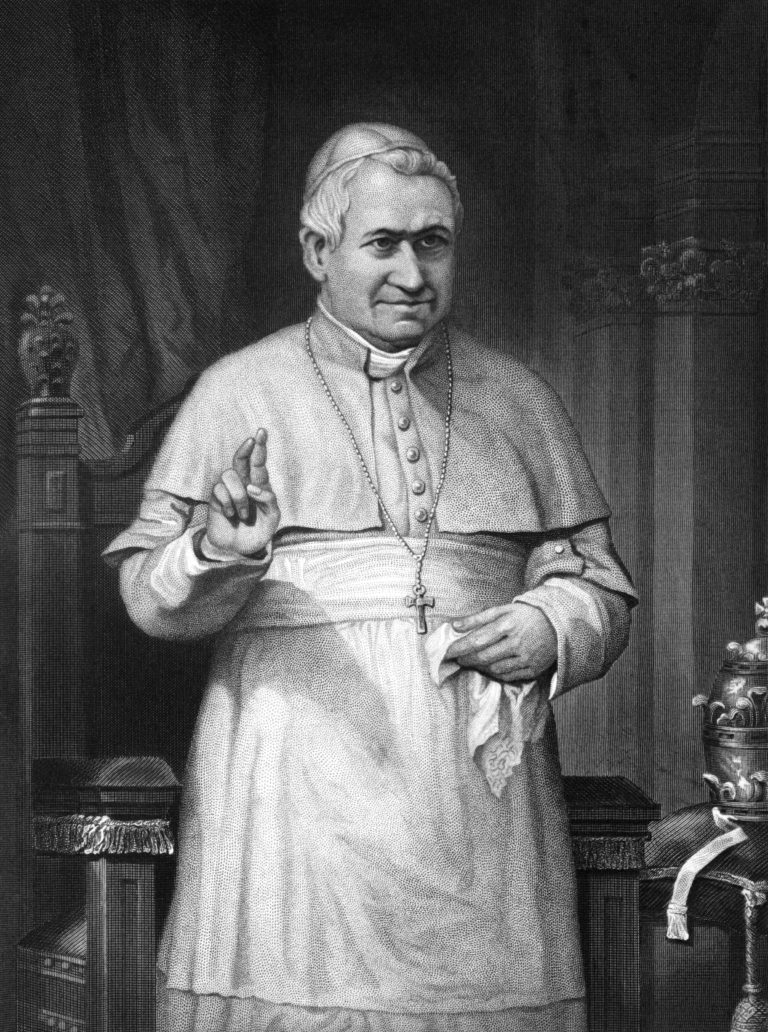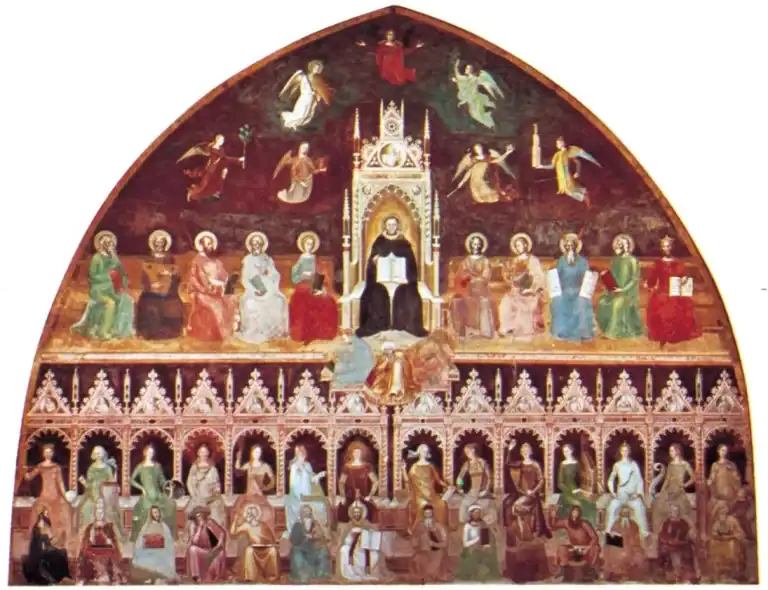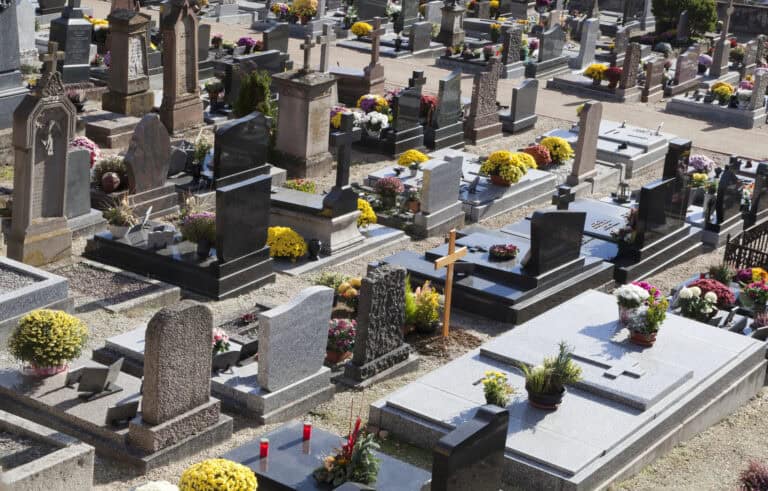Does Hell exist? What is Hell like? Do people go to Hell?
The afterlife comes with two eternal possibilities – either Heaven or Hell. Like Heaven, Hell is both a state and a place where those who have chosen to live a life displeasing to God and without repentance, will spend eternity. Jesus in scripture spoke about Hell being both a place and a state.
The Scriptures tell of Hell as both a state and a place. Hell was created for the fallen angels (St Matthew 25:41). Jesus speaks of the reality of Hell through warnings. Hell is revealed to many holy men, women and children. Those through their own fault will have their bodies united with their soul in this horrible place called Hell.
Why is Hell denied?
Hell is often denied by many, even Catholics, but why? Does this denial come from fear, a lack of understanding or ignorance, or simply giving credence to ‘new age’ or modern philosophies and theologians who deny Hell as a place or
even deny it all together?
Many rationalize that Hell cannot exist because a ‘good-God’ would never send anyone to Hell. But these thoughts are erroneous on many levels for they are counter-scriptural and Church teaching.

Just a thought, if I were Satan I would want the entire world, even the elect, to believe that I do not exist.
Removing Hell, Satan and all the Demons from our understanding, awareness and avoidance, is half the story of salvation and leads many into a false sense of security – a one-sided view of this life and the life to come.
The Scriptures, the Fathers and Doctors of the Church and the Doctrine of Hell, reveal a different side. These have been reinforced through private revelations by Our Lady of Fatima, St Teresa of Avila and St John Bosco (just to name a few).
Where does the name ‘Hell’ come from?
Without a shadow of doubt, the New Testament teaches the existence of Hell and coming from the mouth of the Saviour, Jesus, Himself, after all is it not Hell, which we deserve as punishment for our dreadful unrepentant sins, that Jesus came, suffered and died for to save us from?
The New Testament has a special name for Hell, the number of times Gehenna (γέεννα) is mentioned in the New Testament is shown in the table:
|
Number of Times |
References |
|
7 |
St Matthew 5:22, 29, 30, 10:28, 18:9, 23:15, 33 |
|
3 |
St Mark 9:43, 45, 47 |
|
1 |
St Luke 12:5 |
|
1 |
St James 3:6 |
Here are some quotes:
“Shall not the fewness of my days be ended shortly? Suffer me, therefore, that I may lament my sorrow a little: Before I go and return no more, to a land that is dark and covered with the mist of death: A land of misery and darkness,
where the shadow of death, and no order, but everlasting horror dwelleth” (Job 10:20-22).
“I will rejoice in thy salvation: the Gentiles have stuck fast in the destruction which they prepared. Their foot hath been taken in the very snare which they hid. The Lord shall be known when he executeth judgments: the sinner hath been caught in the works of his own hands. The wicked shall be turned into hell, all the nations that forget God” (Psalm 9: 16-18).
“Woe be to the nation that riseth up against my people: for the Lord almighty will take revenge on them, in the day of judgment he will visit them. For he will give fire, and worms into their flesh, that they may burn, and may feel for ever” (Judith 16:20-21).
“And they shall go out, and see the carcasses of the men that have transgressed against me: their worm shall not die, and their fire shall not be quenched: and they shall be a loathsome sight to all flesh” (Isaiah 66:24).
Jesus himself spoke of this Hell fire.
“You have heard that it was said to them of old: Thou shalt not kill. And whosoever shall kill, shall be in danger of the judgment. But I say to you, that whosoever is angry with his brother, shall be in danger of the judgment. And whosoever shall say to his brother, Raca, shall be in danger of the council. And whosoever shall say, Thou fool, shall be in danger of hell fire” (St Matthew 5: 21-22).
What does the Bible and Tradition say about Hell?
Did Jesus teach through Warning?
Jesus Christ’s teaching on Hell is dreadfully emphatic and clear.
“He that believeth shall be SAVED; but he that believeth not shall be condemned” (St Mark 16:16).
Just as “saved” here means saved in heaven, “condemned” must mean condemned to hell.
Again, Jesus warns us:
“If thy hand scandalise thee, cut it off. It is better for thee to enter life maimed, than having two hands to go into Hell, into unquenchable fire: “Where their worm dieth not, and the fire is not extinguished. “And if thy foot scandalise thee, cut it off. It is better for thee to enter lame into life everlasting than having two feet to be cast into the Hell of unquenchable fire: “Where their worm dieth not, and the fire is not extinguished.
“And if thy eye scandalise thee, pluck it out. It is better for thee with one eye to enter the Kingdom of God, than having
two eyes to be cast into the Hell of fire: “Where their worm dieth not, and the fire is not extinguished.” (Mark 9:42-47).
How explicit Jesus is! How insistent! And what a striking contrast He draws between everlasting life and the Hell of unquenchable fire!
In a similar way.
He warns us against final impenitence (St Matthew 2:32); He urges the duty of charity (St John 15:6); and He demands that we practice chastity (St Matthew. 5:28), all under the pain of eternal punishment.
He tells us, too, that heaven is for those who:
“Do His Father’s will, … and that hell is for those … that work iniquity” (St Matthew 7:21-23).
And how often does He tell the Pharisees that they will be damned if they persist in their hypocrisy:
“You serpents,” He says to them, “generation of vipers, how will you flee from the judgement of hell?” (St Matthew 23:33).
But the dreaded reality of hell is brought home to us most, perhaps, by the graphic description He gives of the Last Judgement. There, as Supreme judge, He will say to the blessed:
“Come you blessed of My Father, possess you the kingdom prepared for you from the foundation of the world”;
and to the wicked: “Depart from Me, you cursed, into everlasting fire, which was prepared for the devil and his angels.”
And Scripture adds:
“These shall go into everlasting punishment; but the just into everlasting life” (St Matthew 25:32).
Note that judges never use figurative language when passing a sentence.
Coming as it does from the lips of Him who is Truth Itself, acting as Judge, this text should strike fear even into the heart of a saint.
Think of it!
Everlasting banishment from God, the Supreme Good, to a never-ending prison of fire, made to punish the devil and his angels!
What did the Apostles teach about Hell?
St Peter tells us that false prophets and lying teachers shall be punished in hell, as are the rebel angels. (2 Peter 2:1-22).
St Paul has a lot to say about Hell. Speaking of the persecutors of the Church, for instance, he says that they:
“Shall suffer eternal punishment in destruction from the face of the Lord, and from the glory of His power, when He shall come to be glorified in His saints and to be made wonderful in all of them who have believed.” (2 Thessalonians 1:9-10).
This text is especially important, because it is St. Paul’s inspired interpretation of Christ’s sentence on the Last Day. And it expresses most clearly and explicitly the reality of an everlasting hell. Faced with these and similar texts from Scripture, we cannot escape the conclusion that hell exists.
What has the Church always taught about Hell (Church Tradition)?
Tradition is just as clear, from the beginning. For the first three centuries, no Christian dare deny the existence of hell. In the fourth century a few heretics called in question its eternity. Their error was instantly condemned by the Church.
Thus, in the Athanasian Creed drawn up about this time, we read:
“They that have done good shall go into life everlasting; and they that have done evil, into everlasting fire. This is the Catholic faith which, unless a man believe faithfully and firmly, he cannot be saved.”
Pope Benedict XII in the fourteenth century, condemned the teaching that those who die in mortal sin do not go to hell till the last day.
Like Scripture, therefore, Tradition leaves no loop-hole whatever for the denial of hell and its eternity. We accept its existence, then, as an article of divine faith, on the Authority of God revealing it. And we are certain that He has revealed it, because the Church assures us Infallibly that He has.
What are some private revelations about Hell? Do people go to Hell?
Are there Holy men and women that have seen Hell, through God’s permission?
The answer is with 100% certainty. Here are three worthy of highlighting.
St John Bosco (1815-1888)
St John Bosco had a horrifying dream of Hell where he was shown that the boys who were lost to God’s Grace, that should they die now, would end up in Hell.
Here is a glimpse of what St John Bosco was shown:
My guide explained to me: “These are some of the causes why many are eternally lost: Bad companions, bad books and bad habits.”
My guide replied: “This is their present state and that is where they would go if they were to die now.”
As I looked again, another boy came hurtling down into the cavern in a despairing fury and at a lightning speed. He too was from the Oratory. As he fell, he remained there immobile. He too emitted a shriek of pain that blended with
the last echo of the scream that came from the youth who had preceded him.
Other boys kept hurtling down with the same impetus, all screamed, and then all became equally motionless and incandescent, like those who had preceded them.
I saw that many of those poor wretches were savagely striking at each other causing terrible wounds; some were biting one another like mad dogs. Others were clawing their own faces and hands, tearing their own flesh and spitefully
throwing it about. Just then the entire ceiling of that cavern became as transparent as crystal and revealed a patch of Heaven and their radiant companions safe for all eternity.
Pressing my ear to the crystal window, I heard some screaming and weeping among the horrible contortions; others were blaspheming and making imprecations against those saints. It was a tumult of voices and cries, shrill and confused.
I asked: “What are they saying? What are they shouting?
He replied: “When they recall the happy lot of their good companions, they are obliged to admit, ‘We fools deemed their lives to be madness, and their end without honor. Behold, how they are numbered among the children of God, and their lot is among the saints. Thus we passed up the path of truth.’ [Wisdom 5:4-6]
“They also cried out, ‘We wore ourselves out on the path of iniquity and destruction and walked through hard roads, but we ignored the way of the Lord. What has pride profited us? All those things have passed away like a shadow.’
[Wisdom 5: 7-9]
“These are the melancholic canticles that sound here for all eternity. But screams, efforts, weeping are all useless. Omnis dolor irruet super eos – All sorrow fell over them! Here time is no more. Here is only eternity.”
As, in utter terror, I viewed the condition of many of my boys, a thought suddenly struck me.
I asked: “How is it possible that these boys are damned? Last night they were still alive at the Oratory!”
The guide answered: “The boys you see here are all dead to God’s grace. Were they to die now or persist in their evil ways, they would be damned. But we should not waste time. Let us go on.”
The guide pointed to one of those veils over which was written: The Sixth Commandment, and he exclaimed: “Transgressions against this commandment caused the eternal ruin of many boys.”
“Did they not go to confession?”
“They did, but they either made a bad confession or purposely omitted the sins against the beautiful virtue of purity. For example, one said that he had committed such sins two or three times when it was four or five. Other boys who
had fallen into that sin in their childhood were ashamed and never confessed it, or made a bad confession, or did not tell everything.
“Others did not have the sorrow for their sin or lacked the purpose to avoid it in the future. There were even some who, rather than examine their consciences, spent their time trying to figure out ways to deceive their confessor. Anyone dying in this frame of mind shall be among the damned for all eternity. Only those who die truly repentant with the hope of eternal life shall be eternally happy.
“Now do you want to see why the mercy of God brought you here?”
He lifted the curtain and I saw at the end of the room a group of Oratory boys – all known to me – who were there because of this sin. Among them were some whose conduct seems to be good.
“At least now you will surely let me take down their names so that I may warn them individually,” I begged.
“There is no need for that”, he answered.
“Then what do you suggest I tell them?”
“Always preach against immodesty. A generic warning will suffice. Bear in mind that even if you admonished them individually, they would make you a thousand promises, but not always sincerely. For firm resolution not to sin again, one needs God’s grace, which will never be denied to your boys if they ask. God is so good that He manifests His power especially by being merciful and forgiving. On your part, pray and make sacrifices. As for the boys, let them listen to your admonitions and teachings and let them consult their consciences, which
will tell them what to do.”
He spent the next half hour discussing the requisites of a good confession.
St Teresa of Avila (1515-1582)
Some considerable time after our Lord had bestowed upon me the graces I have been describing, and others also of a higher nature, I was one day in prayer when I found myself in a moment, without knowing how, plunged apparently into hell.
I understood that it was our Lord’s will I should see the place which the devils kept in readiness for me, and which I had deserved by my sins.
The entrance seemed to be by a long narrow pass, like a furnace, very low, dark, and close. The ground seemed to be saturated with water, mere mud, exceedingly foul, sending forth pestilential odors, and covered with loathsome
vermin.
At the end was a hollow place in the wall, like a closet, and in that I saw myself confined.
All this was even pleasant to behold in comparison with what I felt there.
I felt a fire in my soul. I cannot see how it is possible to describe it. My bodily sufferings were unbearable. I have undergone most painful sufferings in this life and, as the physicians say, the greatest that can be borne, such as
the contraction of my sinews when I was paralyzed—without speaking of others of different kinds, yes, even those of which I have also spoken, inflicted on me by Satan.
Yet all these were as nothing in comparison with what I felt then, especially when I saw that there would be no pause, nor any end to them.
These sufferings were nothing in comparison with the anguish of my soul, a sense of oppression, of stifling, and of pain so keen, accompanied by so hopeless and cruel an affliction, that I do not know how to speak of it.
But here, it is the soul itself that is tearing itself in pieces.
I cannot describe that inward fire or that despair, surpassing all torments and all pain. On another occasion …. and all burning here in this life is as nothing in comparison with the fire that is there. Ever since that time, as I was saying, everything seems endurable in comparison with one instant of suffering such as those I had then to bear in hell.
It also gave me the most vehement desires for the salvation of souls; for certainly I believe that, to save even one from those overwhelming torments, I would most willingly endure many deaths.
If here on earth we see one whom we specially love in great trouble or pain, our very nature seems to bid us to have compassion on him. And if those pains are great, we are troubled ourselves. What, then, must it be to see a soul in
danger of pain, the most grievous of all pains, forever? Who can endure it? It is a thought no heart can bear without great anguish.
Here we know that pain ends with life at last, and that there are limits to it. Yet the sight of it moves our compassion so greatly. That other pain has no ending; and I do not know how we can be calm, when we see Satan carry so many souls away daily. This also makes me wish that, in a matter that concerns us so much, we did not rest satisfied with doing less than we can do on our part—that we left nothing undone.
The Children of Fatima on 13 July 1917:
As Our Lady spoke these last words, she opened her hands once more, as she had done during the two previous months.
The rays of light seemed to penetrate the earth, and we saw as it were a sea of fire.
Plunged in this fire were demons and souls in human form, like transparent burning embers, all blackened or burnished bronze, floating about in the conflagration, now raised into the air by the flames that issued from within themselves together with great clouds of smoke now falling back on every side like sparks in huge fires, without weight or equilibrium, amid shrieks and groans of pain and despair, which horrified us and made us tremble with fear.
(It must have been this sight which caused me to cry out, as people say they heard me).
The demons could be distinguished by their terrifying and repellent likeness to frightful and unknown animals, black and transparent like burning coals.
Terrified and as if to plead for succour, we looked up at Our Lady, who said to us, so kindly and so sadly:
“You have seen hell where the souls of poor sinners go. To save them, God wishes to establish in the world devotion to my Immaculate Heart. If what I say to you is done, many souls will be saved and there will be peace.
And there are others for which you can read in the book by Paul Thigpen, “Saints Who Saw Hell: And Other Catholic Witnesses to the Fate of the damned”
Including: St Hildegard; Blessed Anne Catherine Emmerich; St Catherine of Siena; Venerable Maria of Agreda amongst others.
So let me ask you a question:
Who would you believe in the existence of Hell and that souls do go there as taught, stated and shown to many Saints, Our Lady, Our Lord, Apostolic Tradition and the Church Tradition or some ‘New Age” Theologian of the past 50-100 years?
I know who I would be staking my eternal soul on and without a second thought.
The evidence is overwhelming.
We are all sinners, however, whilst we can still breath, reconcile with Our Lord and avoid every occasion of sin.
Those unfortunate souls could have saved themselves if only they realised how close they were to be saved.
“You have seen hell where the souls of poor sinners go.”
Our Lady to the children at Fatima, July 13, 1917
What is Hell like?
Hell is not only a place for the damned and wicked, Hell has properties.
The Pain of Loss
This is the irreparable loss of the BEATIFIC VISION. The worst punishment of the damned.
Made up of sadness, lonliness, contradiction within the soul (soul was created to love God, now it is filled with hatred).
- Despair
The loss of hope which can drive a person to suicide. This is infinite and immeasurable suffering in Hell.
- Remorse
An intense regret caused by the thought that they could so easily have saved their souls, had they taken the means given by Christ.
This is the “worm that dieth not” so often mentioned in Scripture.
There is no repentance in Hell, just regret.
- FIRE
Jesus said:
“Depart from me, you cursed, into everlasting fire, which was prepared for the devil and his angels.”
This is not a figure of speech for no Judge sentences anyone figuratively.
Christ here banishes the lost souls to a place. The fire here is that which was created to punish the devil and his angels, centuries before any human souls can have been sent to it.
It must therefore be something distinct from them, not just a spiritual experience that starts at the moment of damnation. It is always given as a cause of their sufferings, never as these sufferings themselves. Lastly, this fire will torment the bodies as well as the souls of the damned, after the resurrection;
Jesus says:
“Fear not them that kill the body and are not able to kill the soul; but rather fear him that can destroy both soul and body in hell” (St Matthew 10:28).
Therefore it must be true, material fire, and not just a figurative way of expressing the mental sufferings of the souls in hell.
The difference between Hell Fire and Earthly Fire
|
Hell Fire |
Earthly Fire |
|
Fed by what it burns |
By God’s Justice |
|
Can be Extinguished |
Eternal |
|
A Benefit |
Instrument of Suffering |
|
Consumes its victims |
Does not consume |
|
Gives light |
Compatible with an Intolerable darkness |
Hell Is Eternal
Some would erroneously believe that the damned will one day be saved. This is false!!! Hell is eternal for Satan, His fallen Angels and all the damned!
Our final choice made by us before the moment of
our death. This will determine as to where we will spend eternity
– Will it be HEAVEN or Will it be HELL?
In a Sermon given by St Alphonsus di Ligouri he states:
“Behold! the final doom of sinners who abuse the divine mercy is, to burn in the fire of hell. God threatens hell, not to send us there, but to deliver us from that place of torments.” What about those who foolishly say that “if I go to Hell, I will not be alone. I will have company”.
Assuming that this will make the place bearable. Just think that no one goes to Heaven alone nor to Hell alone. But the company one takes with them to Hell is not the same as those in Heaven. Heaven is all about love, whilst Hell is the opposite:
We are reminded by St Thomas Aquinas:
“Miserable fools! do you not see that the greater the number of your companions, the more insufferable shall be your torments? “There, the society of the reprobate shall cause an increase and not a diminution of misery.” (Suppl., q. 86, art. 1.)
St Thomas Aquinas continues:
“Even as in the blessed in heaven there will be most perfect charity, so in the damned there will be the most perfect hate.”
Hell is a real place and we should do everything and anything through God’s Grace to avoid this place of horror and torment.

